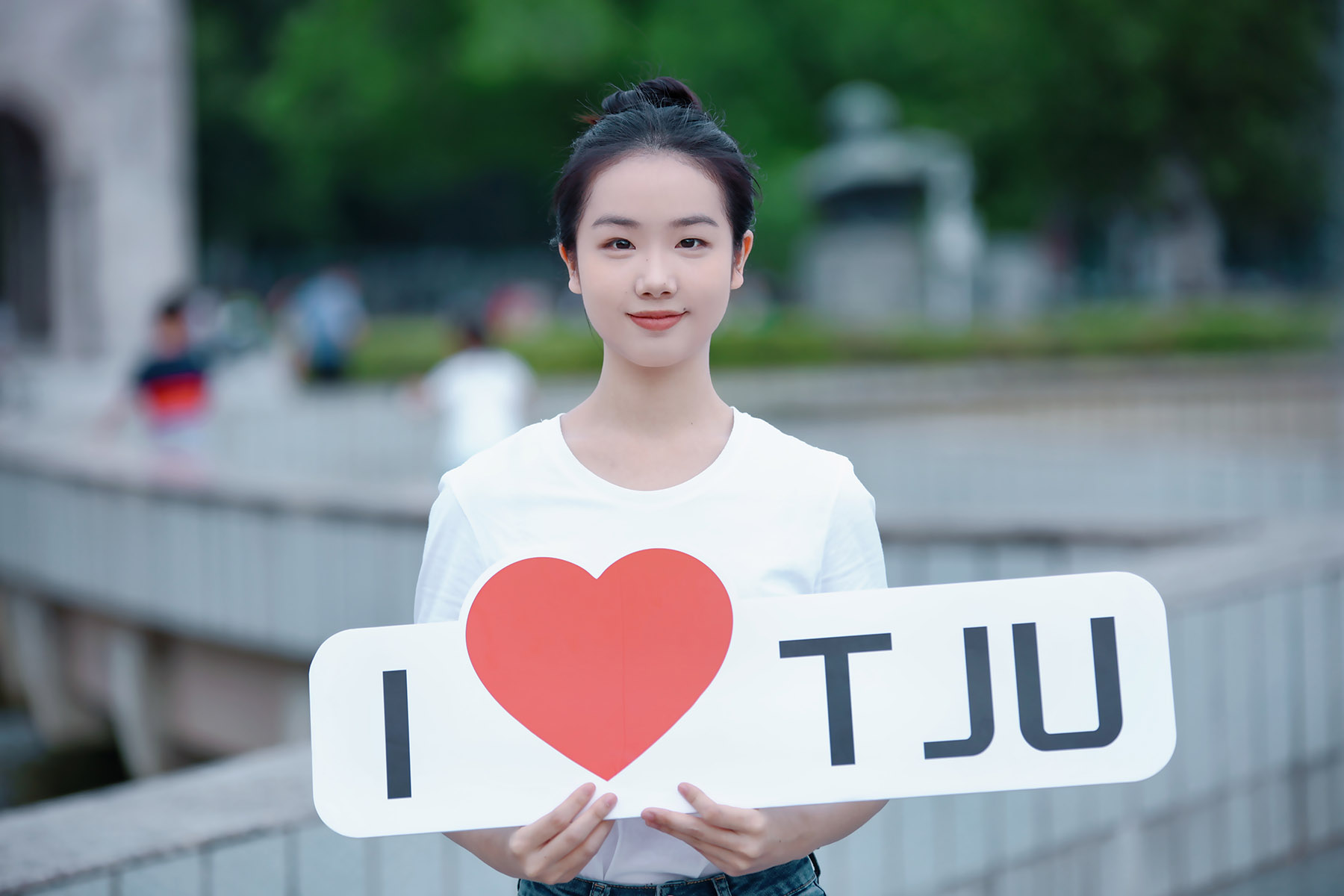
For Malaysian student Cheok Xuan Yu, the decision to study in China was driven by a sense of connection and nostalgia.
She grew up in a Chinese migrant family, she speaks Chinese and learned about China's rich history and culture, and she seized the opportunity three years ago to return to the land of her ancestors.
The 21-year-old, who is studying at Tianjin University, said her great-grandfather migrated to Malaysia from South China's Hainan province, and her family's visits to ancestral graves in China during Qingming Festival, also known as Tomb Sweeping Day, have further deepened her bond with the country.
READ MORE: Xi, M'sia king exchange greetings on 50th anniversary of diplomatic ties
"My family has a strong emphasis on carrying on the tradition," she said, recalling a childhood visit to Hainan and saying that she had always wanted to return to China to see its current development.
Cheok was one of the 87 students at the university who jointly wrote a letter to President Xi Jinping in March to express their feelings about China's development and the Chinese people's friendliness.
In the letter, the students said they are determined to act as messengers and promoters of Chinese-Malaysian friendship.
Cheok had not expected that their letter would be mentioned by Xi during his exchange of congratulatory messages on Friday with Malaysia's King Sultan Ibrahim Sultan Iskandar.
This year marks the 50th anniversary of the establishment of diplomatic relations between the two countries.
In the message, Xi said he is glad to see that the friendship between China and Malaysia will be passed down for generations.
Cheok said, "The 50th anniversary is a milestone for China-Malaysia relations, symbolizing the path our two countries are taking toward a brighter future."
Cheok also said she is a beneficiary of the Belt and Road Initiative, and she expressed her gratitude to the president for offering her a chance to study in China and witness the country's rapid progress.
Under the framework of Belt and Road cooperation, Tianjin University has expanded enrollment of students from Malaysia and other member countries of the Association of Southeast Asian Nations, with nearly 600 Malaysian students studying at the university in 2023.
Cheok said she is impressed by the country's technological innovations and development, especially the shared bicycles, which are convenient, efficient and environmentally friendly.
Cheok's stay in China has also allowed her to deepen exchanges with her Chinese peers. "We take class and do experiments together, and I never feel isolated."
She said that all the students on the campus, whether they are from China or abroad, treat each other as equals, regardless of background.
Furthermore, events such as the international cultural festival have provided Cheok with opportunities to introduce Malaysian culture to Chinese and international students.
"The strength of an individual might be limited, but working together we can better promote exchanges and friendship between our two countries," she said.
She added that she hopes Malaysian students will act as goodwill ambassadors and help to promote even closer relations between the two countries.
Cheok's views were echoed by Tan Pei Wei, who also studies at Tianjin University.
"Educational cooperation provides us international students with a more global perspective, allowing us to experience the customs and cultures of another country," Tan said.
"At the same time, it enables us to introduce Malaysia to more Chinese students who may not be familiar with my country.
"I also hope to introduce China to the youths of Malaysia," she added, stressing the importance of people-to-people exchanges in deepening mutual understanding and promoting bilateral cooperation in various fields such as trade.
Bilateral trade volume has surged from less than $200 million half a century ago to $190.24 billion last year, a 950-fold increase, according to Chinese Ambassador to Malaysia Ouyang Yujing.
China has been Malaysia's largest trading partner for 15 consecutive years and a major source of investment.
Meanwhile, the mutual visa exemption between China and Malaysia, which took effect in December, has facilitated travel between the two countries.
Tan highlighted her family's recent visit to Chengdu, Sichuan province, as evidence that the visa-free policy will attract more Malaysians to explore China.
ALSO READ: Malaysia-China Summit 2024 set to boost trade
Malaysian statistics showed that the number of Chinese tourists visiting Malaysia in 2023 exceeded 1.47 million, making China the largest source of tourists for Malaysia outside of ASEAN.
Since the start of the year, more than 275,000 Chinese tourists have visited Malaysia each month, according to the Chinese ambassador.
This fully demonstrates that the mutual visa-free policy has met the needs of the two peoples for frequent exchanges, enabling Chinese and Malaysian tourists to embark on a journey anytime without planning, Ouyang said in a recent interview with China Central Television.
The mutual visa exemption has also promoted the recovery and growth of the airline business and tourism between China and Malaysia, he said, adding that it will undoubtedly further promote people-to-people exchanges, enhance the economic benefits of related industries, and facilitate all-around practical cooperation.
Contact the writers at zhoujin@chinadaily.com.cn


